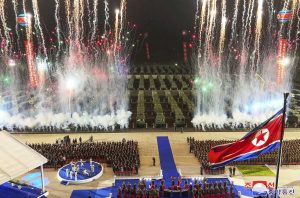Domestic politics significantly shapes the trajectory of inter-Korean relations, leading to different dynamics depending on the government in power in South Korea. Historically, both conservative and progressive governments have pursued the denuclearization of North Korea, but their differing approaches – ranging from pressure to engagement – have produced distinct outcomes.
Under the conservative Lee Myung-bak and Park Geun-hye administrations, their adoption of hardline policies in response to North Korea’s military provocations and nuclear weapons program escalated tensions. North Korea usually found little incentive to engage, since conditional offers of assistance by the conservative governments provided little opportunities to extract concessions. As a result, inter-Korean relations tended to deteriorate under conservative rule.
In contrast, progressive governments under Kim Dae-jung, Roh Moo-hyun, and Moon Jae-in prioritized engagement and dialogue, which allowed North Korea to see more opportunities to extract concessions from South Korea. Consequently, when progressive governments were in power, North Korea often responded positively, leading to a thaw in relations and bilateral summits, although these efforts made little progress on North Korea’s denuclearization.
Regardless of the effectiveness of either approach, the pendulum swing resulting from changes in government has become a defining feature of South Korea’s policy toward North Korea.
This dynamic is currently at play. Since the conservative Yoon Suk-yeol took office in May 2022, inter-Korean relations have spiraled downward. It is important to note that inter-Korean relations had already soured during the previous government, after the collapse of the North Korea-U.S. summit in Hanoi in 2019. North Korea, embarrassed by the summit’s failure, destroyed the inter-Korean liaison office.
However, recent actions by both North and South Korea demonstrate a deeper breakdown in their relationship. What is driving the policies of the two Koreas toward each other, and what are their political calculations?

































